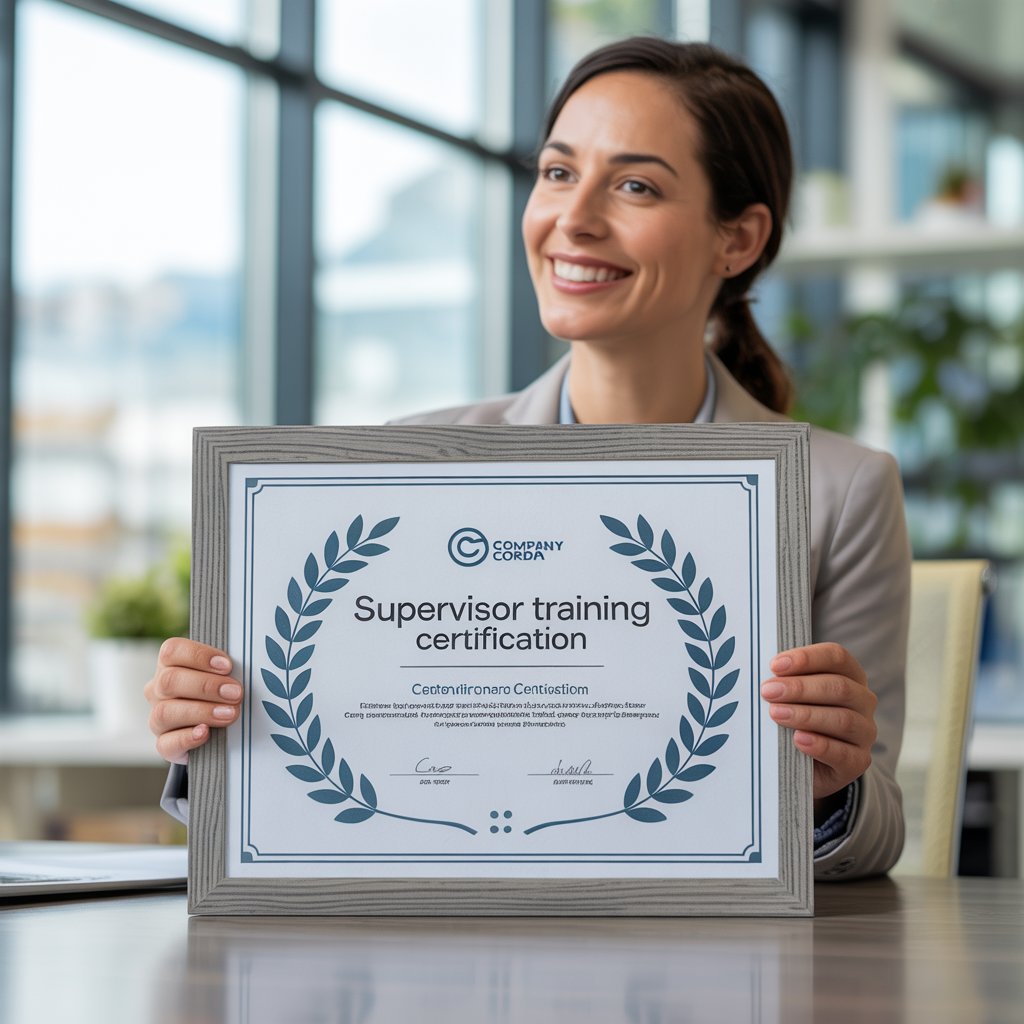education

June 05,2025 • 4 min read
Stepping Stones for Planning an Effective Supervisor Training

Organizations across industries understand that a supervisor's performance directly influences team productivity, employee morale, and ultimately, business success. Yet, many companies overlook a critical element in shaping high-performing supervisors—structured and strategic Supervisor Training. While promoting high-performing employees into supervisory roles is common, the assumption that they can lead effectively without proper training is a costly mistake.
Planning a comprehensive Supervisor Training program is not just about ticking a box; it's about preparing the foundation for leadership, decision-making, and team management. In this blog, Unichrone presents the essential stepping stones to design and implement a powerful Supervisor Training program that transforms individuals into confident and competent leaders.
Why Supervisor Training is a Strategic Investment
Supervisors are often the first line of management and the link between strategic goals and daily operations. Without the right skills, they may struggle with communication, delegation, conflict resolution, and performance management. Effective Supervisor Training ensures that your leaders are not only aware of their responsibilities but are also equipped to handle them efficiently.
Benefits of Supervisor Training:
-
Enhances leadership and people management skills
-
Reduces employee turnover through better engagement
-
Strengthens workplace communication and collaboration
-
Increases operational efficiency and performance
-
Builds a leadership pipeline for organizational growth
Assess Organizational Needs
The first and most crucial step in planning an effective Supervisor Training program is understanding the specific needs of your organization. What challenges are supervisors currently facing? What skills are lacking across teams?
How to do it:
-
Conduct skills gap analysis among current supervisors
-
Collect feedback from team members, HR, and senior leaders
-
Review past performance data and team metrics
-
Identify trends such as high turnover, poor communication, or missed deadlines
Define Clear Objectives
Once you've identified the challenges and gaps, it's time to define what success looks like. Clear training objectives help in measuring progress and ensure that participants understand the value of the training.
Examples of Supervisor Training Objectives:
-
Improve delegation and time management skills
-
Enhance communication and conflict resolution capabilities
-
Build confidence in performance appraisal and feedback delivery
-
Equip supervisors with motivational leadership techniques
Customize the Curriculum
One-size-fits-all training rarely produces results. Every organization operates differently, and so do their teams. An effective Supervisor Training program should be tailored to match the organizational culture, industry demands, and existing skill levels of the participants.
Core Topics to Include:
-
Leadership and emotional intelligence
-
Communication and interpersonal skills
-
Conflict management and problem-solving
-
Team building and motivation
-
Time management and task delegation
-
Goal setting and performance evaluation
Select the Right Training Format
How training is delivered significantly impacts its effectiveness. Depending on your team's size, location, and work schedules, choose a format that maximizes engagement and retention.
Training Format Options:
-
In-person workshops – Ideal for hands-on activities and role plays
-
Live virtual sessions – Flexible and cost-effective for remote teams
-
Blended learning – A mix of online modules and face-to-face coaching
-
On-the-job training – Real-time guidance and shadowing opportunities
Choose Qualified Instructors
The trainer makes a huge difference in how content is received and applied. Experienced instructors bring real-world knowledge and industry insights that go beyond textbook theories.
What to Look for in Instructors:
-
Proven experience in leadership or supervisory roles
-
Strong facilitation and coaching skills
-
Industry-specific knowledge
-
Ability to engage participants and encourage discussion
Incorporate Interactive Learning
Learning by doing is far more effective than passive listening. Incorporating interactive components into your Supervisor Training keeps participants engaged and helps them retain information longer.
Interactive Elements to Include:
-
Group discussions and team exercises
-
Case studies and scenario-based learning
-
Role-playing difficult conversations or performance reviews
-
Leadership simulations and decision-making games
-
Feedback sessions and self-assessments
Include Real-World Applications
The best Supervisor Training connects theory with real-world application. Supervisors must understand not only what to do but how and when to do it in practical workplace settings.
Strategies to Ensure Practical Application:
-
Assign post-training projects or action plans
-
Encourage supervisors to practice skills with their teams
-
Schedule follow-up sessions for reflection and improvement
-
Use coaching or mentoring for on-the-job guidance
Final Thoughts
Planning a successful Supervisor Training program requires intention, structure, and follow-through. Each of the steps outlined—from assessing needs to integrating training into culture—plays a vital role in ensuring the effectiveness and sustainability of your efforts.
Empowered supervisors don’t just manage—they lead, motivate, and transform teams. By investing in thoughtfully designed Supervisor Training, you’re building a stronger, more capable leadership foundation for your organization’s future.
Partner with Unichrone today and begin crafting a Supervisor Training strategy that turns potential into performance.
Arpita Dey Details
User Profile
- Full name
- Arpita Dey
- Email address
- dey95.arpita@gmail.com
- Join Date
- 2025-04-09
- State
- City
- Pincode
- Address
- Follow us on Facebook
- Follow us on Twitter
- Website Name
- Bio